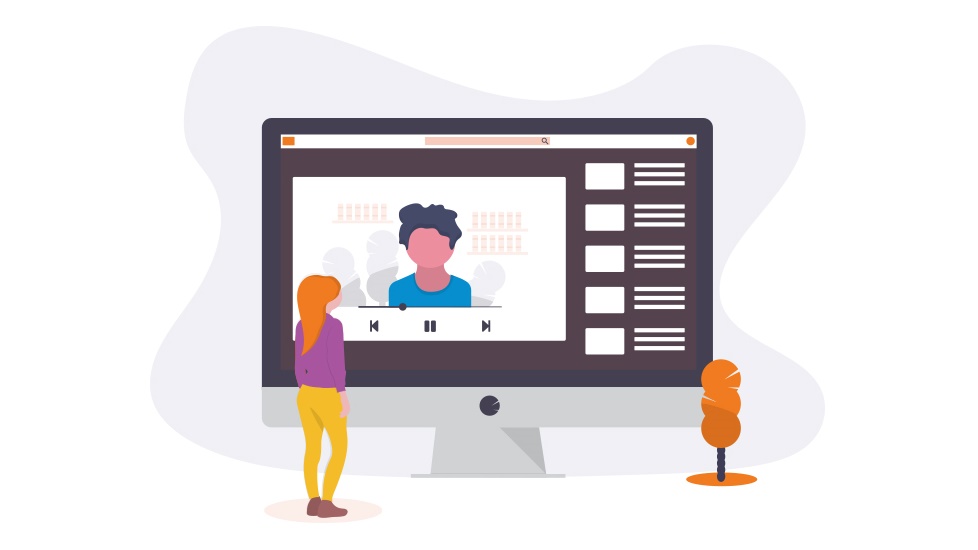posted: 03.09.2020 12:43
School
E-learning: Teaching for Teachers
During the COVID-19 lockdown, the schools were closed in mid-March. Teachers, students and other stakeholders have found themself in limbo. You can not just switch off the education process, and you had to continue online. Still, the transfer from the classrooms to online platforms has caught us all unguarded.
The main problem lies in the fact that teachers-to-be are not trained at their universities in Bosnia and Herzegovina to perform online or hybrid schooling. The curriculum of the vast majority of them does not include topics such as e-learning, online curriculum content, validation of the e-learning and similar. In the first phase of transfer to online platforms, teachers coped by using different apps and communication platforms. Some schools have already been using media for education process management, even before lockdown. For those rare examples, the transfer to online schooling wasn’t an issue.
After the initial transfer, jet another problem occurred. There was no systematic switch to a specific platform, and the teachers were constrained to use multiple tools and apps for different students. Besides, some data shows that 10-15% of students don’t even have access to the internet or necessary equipment (laptop/phone/tablet). Those students couldn’t be a part of the education process at all.
We were sure about one thing: teachers had to put an extra effort to train themselves on how to use available platforms.
SPARK has suffered the same fate. The workshops were transferred online at Moodle platform, and Google Meet supported the process. Moodle wasn’t new to us as we use it for hybrid education approach (a combination of traditional and online schooling). At that time, we have also decided to go with a new online workshop for teachers and professors: E-learning – Teaching for Teachers. We’ve come to realize that the concept of e-learning will be misinterpreted. There was a danger that E-learning will be reduced to PDF or Word doc upload to some collaboration platform (Google Drive) or learning management system.
WhatsApp and Viber chat groups are also not E-learning. It is quite easy to understand the essence of the E-learning. In a nutshell, it’s a learning process performed using technology that enables access to curriculum outside the traditional classroom. In most cases, it refers to course, program or education level that is rolled out online.
The very first course for professors was titled E-learning: Teaching for Teachers. The takes from it were the definition of E-learning, description of the process and system, the configuration of the E-learning system, analysis and implementation of the E-learning system. In short, Teachers got familiar with the basis of E-learning theory, and with the activities and resources at Moodle through live work. Mr Slavomir Stankov, professor and experienced professional in the field of E-learning, together with Head of SPARK school, Matea Markić Vučić led the course.
The first course lasted a month and a half. After that, teachers have continued with the second phase on July 20, 2020. Teachers have found this phase titled: “Instructional Design: Teaching for Teachers” to be more interesting. The course was based on practical task and prep work of actual curriculum. The participants have got the chance to create Moodle lessons, homework, use forum, prepare tests. They have also been introduced to Memory.com system. The very end of the course has included validation according to predefined criteria.
The next step for SPARK is to organize the course that will cover the validation of E-learning and learning analytics. This course will round out the topic.
SPARK wanted to offer quality theoretical underpinnings to teachers and professors, followed by practical work. Working principle and methodology acquired at the courses can be applied to education content modelling in general, no matter of platform.
A comment from one of the participant was: “I would like to commend the concept of both seminars. I find useful the initial presentation of the E-learning concept, as well as the understanding and the practical work we were engaged in. We even manage to cover the evaluation topic by analyzing the work of other participants. This approach we all should implement in our work with the students. I had doubts when it comes to the online learning process and its efficiency. You manage to prove me wrong.”
E-learning is the world for its own and unlimited space for research. It requires extra work and specific knowledge from teachers. Preparation of the online curriculum content has to be in line with the set standards and methodology to achieve intended learning outcomes.
The next cycle of our E-learning workshops is in preparation, and the teachers who want to be a part of this process are welcome to contact us.
